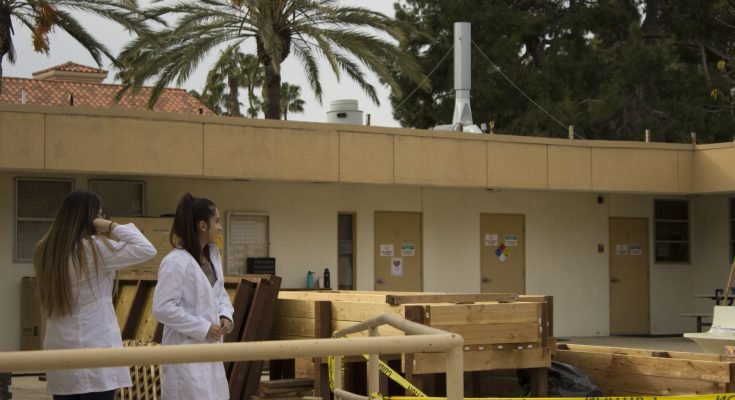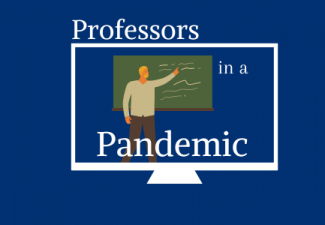After launching prioritization over campus programs last semester, the implementation of these decisions, and the continued communication of changes to students, falls on Provost Dr. Pete Menjares. With changes affecting all departments by varying degrees in the upcoming semesters, the growth in STEM majors and the restructuring of the Business and Communication departments will be the most visible of these changes.
Prioritization met backlash last semester when students felt they had largely been left in the dark regarding the process. However, Mejares is confident that the changes will lead to a better student experience overall.
“It is actually turning out to be quite fun because we are dreaming now about the future,” Menjares said. “How we can make our programs stronger, how we can implement best practices, listening to students, paying attention to everything that’s going on around us.”
When Menjares came on as the Interim Provost in the summer of 2018, the decisions regarding prioritization were already made. His main responsibility was implementing the new direction. Because he was not involved with the decisions regarding the prioritization plan, the president asked Menjares to bring an outsider perspective on the process and ask questions.
In response to the negative student reactions to prioritization, Menjares acknowledged that many of the cut programs and staff were important to students and their frustration in not hearing from administration was valid.
“In retrospect, we could have been more proactive with our communications to students,” he said. “I think we, as an administration, could have been more proactive in equipping our academic leaders, our undergraduate department chairs for example, with more details or direction.”
Menjares’ work has largely been focused on working with the department chairs, as they are currently forming an “innovation plan” that will shape the future of their academic programs.
“We have programs that are thinking of interdisciplinary approaches to their work,” Menjares said, citing the Business and Communication Departments as examples.
Once each department has come to a conclusion of their needs and goals, the university will create a comprehensive academic plan that will outline the overall vision in a three-to-five year time span, according to Menjares.
The future of departments may be more interdisciplinary, Menjares explained, with departments like Business and Communication, or Communication and Theatre Arts having a more collaborative approach to their shared subjects. Kinesiology may be partnered with the sciences, such as nursing, more thoroughly as well.
In addition to this possible collaboration, the sciences will see clear expansion, according to Menjares. Currently, the faculty government is considering a second-phase proposal by Tara Sirvent, Interim Associate Dean of STEM, for three new science programs. Actuarial science and engineering physics were voted on in the last senate meeting, according to Menjares.
Menjares explained that the growth of the sciences comes as a result of the nursing program expansion and the development of STEM. Additionally, the modules being built at the campus mall will accommodate this growth, but the Campus Master Plan intends for an entirely new facility after the student center construction is finished. However, Menjares explained that an exact understanding for new facilities will not come until the programs’ curriculums have been confirmed. With limited space available, administration is considering how to accomodate the need for new facilities with other university values.
“Because we care so much about the student experience, it’s not just classroom-lab space, but it’s also students wanting space to hang out. We don’t have the Cove anymore, so until the new center is built we have students looking for spaces to congregate, study together,” Menjares said.
Prioritization seeks to meet student needs by developing the sciences. Even with well-developed programs at nearby universities like University of California Irvine (UCI), Menjares believes that the special approach Vanguard has to offer will keep the school competitive in the academic field.
“People come to Vanguard for lots of reasons. And one of them, of course, is the faith dimension–the fact that we can go deeper with students in their faith, that we can look at the science as well through the lens of faith, as well as scripture, being taught and mentored,” Menjares said.
Beyond the faith aspect of education, Menjares explained there are other critical parts of the Vanguard experience such as smaller class size and the faculty’s approach to education.
“One advantage here is our students are going to be known by their faculty,” Menjares said. “They are going to have the opportunity to do research with their faculty, be advised and guided as they think about graduate school or what they’d like to do once they graduate. Our faculty are our greatest assets because they are able to journey with students from the very beginning.”
Outside of the STEM development, other majors are also receiving attention and improvements through the prioritization process. The Business Department is developing a vision plan and the Communication Department is currently undergoing restructuring.
“I’m excited about what our Business and Communication faculty are going to want to do going forward. I think we have lots of opportunities for innovation and creativity. Business is so important, and how we understand business from a Christian perspective,” he said.
He said the future of Business may include a Masters of Business Administration, as prioritization tries to determine how to best fill the needs of students. Other considerations include possible online classes for non-traditional students, as well as the cultivation of a new structure for the department. According to Menjares, this plan is being led by Trish Fisher and has been sent for approval to the faculty senate.
Menjares noted that the prioritization of the Business and Communication Departments, in addition to the emergence of younger faculty, helps tailor the student experience for the modern age. This, along with the wisdom of older professors, is what is shaping a unique education, according to Menjares.
“We have professors in our Comm Department like Naomi Kasa that are just excellent in understanding this generation and the needs, hopes, and desires,” he said. “We are equipping our students not only for the current reality, but giving you the skills necessary to grow and innovate, to be lifelong learners,” he said.
Despite the more visible changes in these departments, Menjares explained he is excited for the results coming from the self-evaluation. For example, he notes how the Religion Department continues to consider what it means to the historic heart of the university, and its approach to carrying God’s truth in the context of the times.
Menjares gave students credit for being respectful and passionate in their response to the changes of prioritization. His next step is to properly address the issue so it does not happen again.
“If anything, we are being more course-correcting and we are trying to be more proactive. And what we will do…is provide periodic updates of what we’ve done and what changes were made,” he said.
Through the entire prioritization process, Menjares is dedicated to see that the faith foundation of Vanguard shines through all departments and disciplines. As the school approaches its centennial, he explained it is time to consider the past, present, and future, and how this will influence the training of spirit-led professionals.
“[We are] having conversations about what it means to integrate theology, philosophy, ethics, and ministry. Keeping the focus on preparing our students for ministry, whether it’s in the church, the mission field, the health sciences, communications, business–wherever God calls you,” Menjares said.

 Vol. 8 | November 2022
Vol. 8 | November 2022 Summer of Service: Entourage, Delivery Boys and Mission Trips
Summer of Service: Entourage, Delivery Boys and Mission Trips Professors in a Pandemic
Professors in a Pandemic US and British Troops End Combat Missions in Afghanistan: Is This a Victory?
US and British Troops End Combat Missions in Afghanistan: Is This a Victory?
Leave a Reply